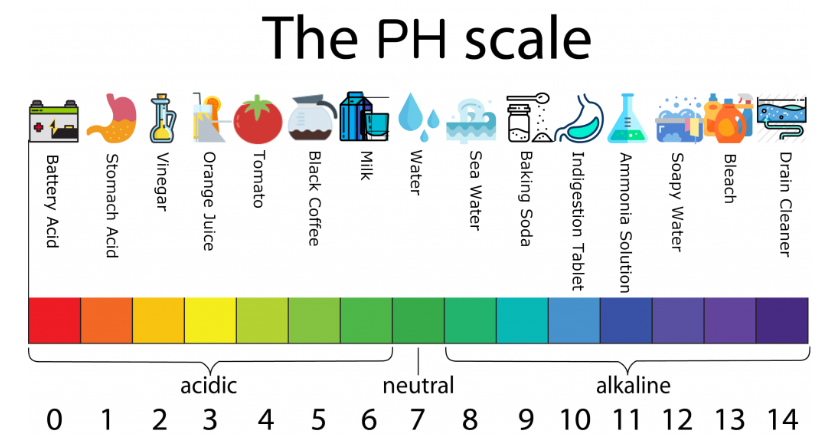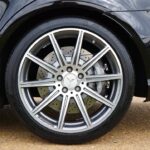Qhais PH Level of Super Clean,When it comes to removing stubborn dirt and grease, Super Clean is one of those cleaners that appears everywhere – from professional garages to home kitchens. But one question that often comes up is about the pH level. If you’re into chemistry or just being careful about the products you use, you may already know that pH levels tell a big story about how a cleaner will perform, especially on different types of surfaces. So let’s take a look at Super Clean’s pH level and break down why it matters.
First, what exactly is pH?
We will quickly cover the pH itself. pH stands for “potential of hydrogen” and is a way of measuring the acidity or alkalinity of a substance. The scale goes from 0 to 14, where anything below 7 is acidic, 7 is neutral, and anything above 7 is basic (also known as basic). Simple enough, right? For example, lemon juice, which is acidic, is around 2 on the pH scale, while baking soda, which is alkaline, is closer to 9.Qhais PH Level of Super Clean.
Knowing the pH of a cleaner like Super Clean will help you understand not only its cleaning power, but also which surfaces are safe to use and which might be damaged. This can make a huge difference, especially if you’re using it on something delicate or expensive.
Super Clean: principles of pH level:Qhais PH Level of Super Clean
Super Clean’s pH value is quite high, meaning it falls into the alkaline range. Alkaline cleaners are known for their ability to break down grease. Fat and oil, which are often acidic, tend to break down more easily when exposed to an alkaline substance. This is why Super Clean is popular for jobs that involve large amounts of grease, oil and stubborn dirt such as garages, kitchens and even some industrial facilities.
Why does pH Super Clean matter?
Now you might be asking: why does it even matter if it’s acidic or basic? The pH level affects everything about how Super Clean interacts with dirt, grease and, just as importantly, your surfaces.
Because Super Clean is highly alkaline, it is designed to be incredibly effective against organics such as oils, dirt and food residue. But because it is so powerful, it must also be used with some caution. If you’re using it on something delicate—think unfinished wood, natural stone, or certain metals—you may want to test it on a small area first to avoid any unwanted reactions.
Real life example: Super Clean in action
Imagine cleaning the engine compartment of your car. There is a lot of grease, dirt and who knows what else. Regular dish soap won’t cut it; you would scrub for days. But Super Clean, with its high pH, cuts through that grease in no time. You can spray it on, leave it on for a while, and then watch the grease practically melt away as you rinse it off. That’s the power of an alkaline cleaner!
Or take another example: You have a dirty, greasy kitchen vent cover. After months (or let’s be real, years) of cooking, it has a layer of greasy grease on it that just won’t budge. Super Clean shortens, breaks down oils quickly so you can wipe them off without too much elbow grease. The high pH level is what gives it that edge.
Alkaline vs. Acid cleaners: When to use what:Qhais PH Level of Super Clean
One of the great things about detergents is that different pH levels mean different cleaning abilities. For example, acidic cleaners are fantastic for removing mineral deposits or rust stains. This is why you would use vinegar, which is acidic, to clean your shower head or remove hard water stains from glass. However, alkaline cleaners like Super Clean are your go-to for anything oily, greasy, or organic.
Knowing when to use an acidic cleaner versus an alkaline one can save you a lot of frustration and in some cases prevent damage to surfaces. Super Clean is a great example of a product you can turn to for greasy and dirty jobs that acid cleaners just can’t handle.
Safety Tips: Use Super Clean wisely
Since Super Clean is highly alkaline, it is wise to take a few precautions when using it. Here are some tips to keep in mind:
Gloves are your friend: Highly alkaline products can be harsh on the skin. It is a good idea to wear gloves to protect your hands, especially if you will be using them for a long time.
Dilution is key: In many cases, you don’t need the full strength of Super Clean. You can dilute it with water for easier work. For example, if you are cleaning floors or worktops, a diluted solution may be sufficient without the need for high strength.
Ventilation: As with any powerful cleaner, make sure you are in a well-ventilated area, especially if using indoors. Opening a window or turning on a fan can make a big difference.
Surface Testing: If you are unsure how Super Clean will react to a surface, do a quick spot test on an inconspicuous spot. This will help you avoid accidental contamination or damage.
Distribution of various applications
It’s worth noting that Super Clean isn’t limited to garage floors or car engines. Here are some popular uses where its high pH really comes in handy:
Garage floors: Super Clean is effective on oil stains on concrete. You can apply it, scrub with a brush and rinse to remove even old dried-on stains.
Outdoor grills: Greasy and burnt-on grills can be difficult to clean, but Super Clean cuts through residue with ease. Be sure to rinse thoroughly afterwards, especially if you cook food on it.
Kitchen appliances: Super Clean is great for degreasing oven doors or hobs. Thinning is often key here to avoid damaging the finish, but it is very effective on stainless steel and glass.
Tires and Wheels: If you wash your car, Super Clean is great for wheels and tires. It helps dissolve greasy dirt that can build up, giving your wheels a fresh, clean look.
Why Super Clean works so well: The science behind pH
So why does high pH matter so much? When you apply an alkaline cleaner to a greasy or oily substance, a chemical reaction occurs. Alkaline substances can saponify oils and fats, essentially breaking them down into smaller, water-soluble parts. This is why a product like Super Clean can lift and dissolve oils so effectively. Simply put, a high pH acts almost like a grease magnet, pulling dirt up and away from the surface.
This is why you often see Super Clean recommended for tough cleaning tasks. It’s not about toughness, it’s about precision—knowing exactly how to do the job with the right chemical reaction for each task.
Wrapping Up: Is Super Clean Right for You?
Finally, if you’re tackling a big, greasy cleaning project, Super Clean is a fantastic tool to have in your arsenal. Its high pH level makes it the best choice for tough jobs where other cleaners might fall short. Remember to use it carefully and follow these safety tips, especially when working on sensitive surfaces or with a full-fledged Super Clean.
So the next time you’re staring at a tough cleaning job and wondering if anything can break through the mess, give Super Clean a try. It’s a powerful and effective solution that works thanks to its high pH, and once you see it in action, it’s likely to become one of your favorite cleansers. Whether it’s in the garage, kitchen or driveway, Super Clean is ready to make tough jobs a lot easier.



